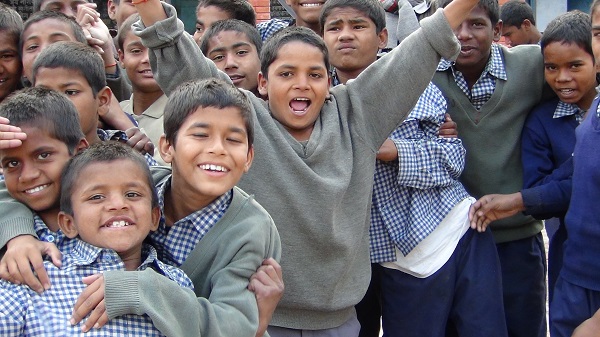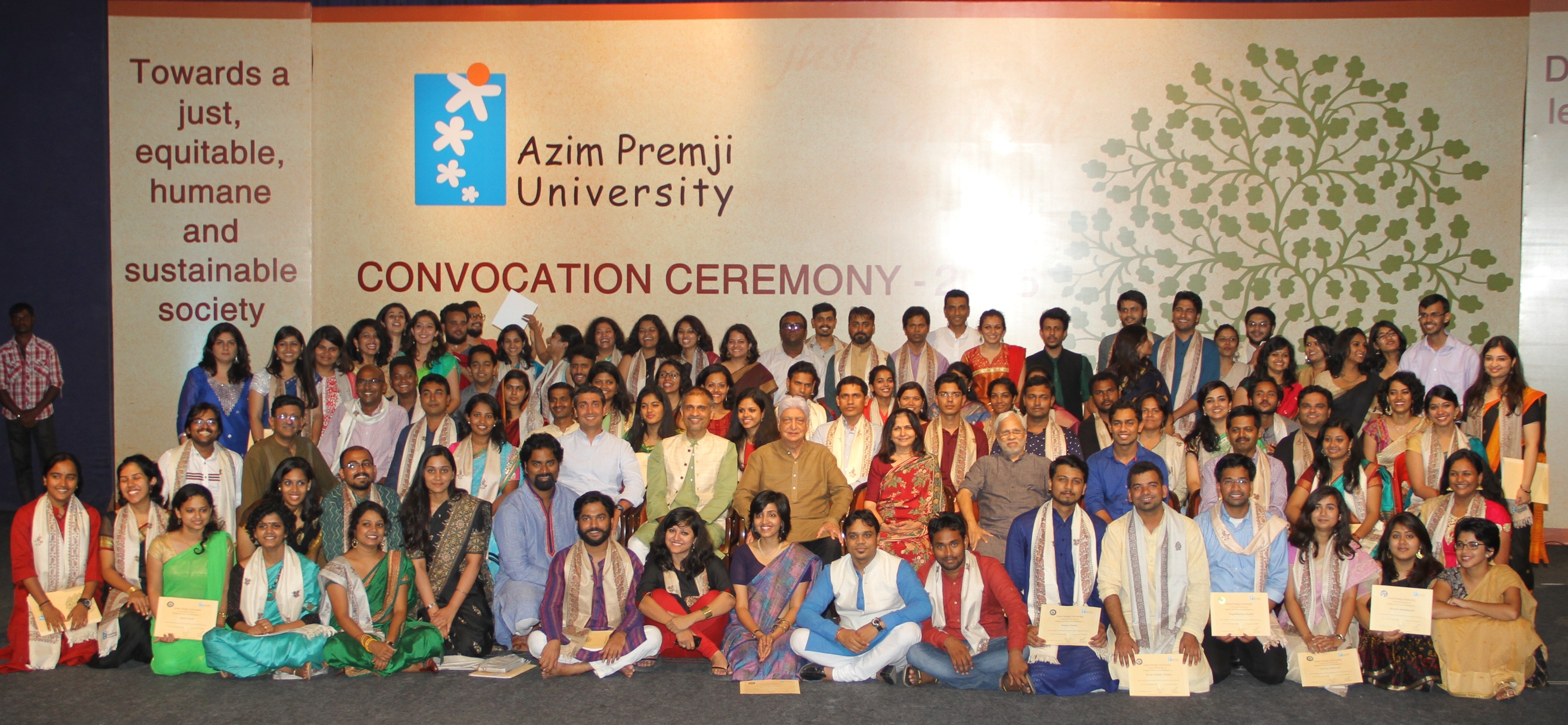Reform or change? Is philanthropy about changing the social and economic system or trying to reconcile people to it through palliative measures? Ananthapadmanabhan Guruswamy is the Chief Executive Officer of Azim Premji Philanthropic Initiatives (APPI) set up by successful Indian entrepreneur, Azim Premji. Ananthapadmanabhan gives Charles Keidan his views.
We’re meeting here at the WINGSForum in Mexico City. You were involved in the first session of the event, a very challenging discussion about the difficult relationship of philanthropy with capitalism and wealth creation. What were your reactions?
Well, the growth in philanthropy – and I’m talking about organized philanthropy by very rich people – is clearly a consequence of the growth in capitalist wealth accumulation. That’s a fact but it doesn’t mean that philanthropy can’t get past that. To me, it seems important to acknowledge that philanthropy is inextricably linked to a certain kind of capitalism and that does create conflicts, but the problems that it causes are not insurmountable.
What can you do, in your position, to transcend those constraints? Would all of that wealth need to be recycled to philanthropy, or would it have to be focused on certain systems change?
For me, the real question is, what can I do with the mandate that I have that can really make a difference? We are less than three years old but we already have a portfolio of about a hundred grantees and our commitments are close to 120 million dollars – touching tens of thousands of lives.
We have substantial grants to organizations who are doing good, direct work with five or six vulnerable communities – street kids, the homeless, women who are in situations of domestic violence, girls who are trying to find their feet in the world with tremendous constraints, the disabled and small and marginal farmers.
The programme that supports them is designed to be deliberately broad. We call it ‘value in itself’ – in other words, even if we can’t completely solve the problem of, say, the disabled in India, that should not stop us from supporting good people doing great work. It’s our way of saying our needs in India are terrible and not all of them are material.
A woman in a situation of domestic violence will sometimes need shelter, but very often she needs counselling, or legal services, or somebody to advocate in the community for her space.
There are two other things we do. First, we have a big interest in changing two kinds of systems. One set of systems that we call ‘governance’: courts, planning and things like that. The other kinds of systems we call ‘developmental welfare’ – delivery of things like nutritional services or of agricultural extension services. For these, we work very closely in partnership with the state governments.
Do you try and change the other system, the caste system?
We are not doing any work directly trying to change the caste system, but several of our partners are working with those kinds of issues, mobilizing women and girls in Dalit communities, for example.
Do you think philanthropy should be challenging governments when they see them abusing their power?
In India, we have a very good constitution which is an embodiment of the values that we would like to see in society, so we have a very easy way of navigating the difficulties that you are talking about.
For instance, to us it is very clear that what is happening in the court system is unjust. For one thing, two-thirds of India’s prisoners are technically innocent because they have not been convicted of anything. They are pre-trial detainees. The only reason they are there is that they don’t have the ability to get bail because they have no lawyer who can appear for them.
The second thing is that it takes years to settle a matter in court, because there is such a huge backlog of cases. So in essence, access to justice, especially for the poor, the marginalized, the discriminated against is limited and setting this right is in everybody’s interest.
Also, the hostility of the government to civil society is very old in India and runs deeper than the current regime. That said, I think there is a lot of important rights-based work that philanthropy can do. Doing that is not in conflict with the government at all in the sense that the government is trying to live up to the constitution and so are we.
Coming back to APPI, how are decisions made? Do you set the strategy and the family set the vision?
What we did when we set up was decide that we would learn iteratively: we would rapidly prototype, make some grants, enter into some partnerships, learn and go ahead. So we haven’t spent an awful lot of time thinking about this question of who does what.

Azim Premji Philanthropic Initiatives provides grants to NGO’s like Society for Assistance to Children in Difficult Situation (SATHI), which rescues runaway children and returns them safely home.
The family doesn’t have too many preconceived notions. They expect the professional staff to be suggesting what they should be doing, but we have very regular conversations about strategy – what is it that we are trying to do? – and about particular grants. At the moment, we’re in conversation about the grants we’ve made to organizations working with the disabled.
They all seem to be in urban India, so the debate is are we doing the right thing? That question was raised by the family. So we’ll quickly look at it and come back with something. The Premji family is very involved. Between them, they’ve probably spent around 30 days visiting partners in the last year, so they understand the field. It’s a very open brief and we are learning.
And what’s the relationship between the Azim Premji Foundation and the Philanthropic Initiatives?
We’re a traditional grantmaker working on a range of issues. The foundation is an operating foundation that works on a single issue, improving the quality of public school education in India.
India has an astounding 130 million kids in school and something like 6.6 million schools and not enough quality teachers to go round so the foundation has set up the Azim Premji University to train teachers and other education professionals.
In the session here on funders and infrastructure, you identified three considerations for your work. One was what you should do yourselves as opposed to making grants to others. The second was lack of common cause between Indian civil society and national donors and the third was the lack of a socially minded infrastructure in Indian philanthropy. Do you see any likelihood of investment by APPI in philanthropy infrastructure going forward?
I think there are the elements of an infrastructure already there in India. We have an association of the NGOs. We have a national foundation. We have a few pieces, but they need to come together. I think WINGS members could perhaps lead on that. One of my big takeaways from this conference is that we need a clear infrastructure.
 The second thing is that the bridge between Indian funders and Indian NGOs needs to get much stronger. Is philanthropy trying to change the world or is it trying to include people who have been excluded? Those are very different things. Everywhere in India you see that people are better off. Although indicators show a more complicated picture, rapid economic development has done a large number of people good.
The second thing is that the bridge between Indian funders and Indian NGOs needs to get much stronger. Is philanthropy trying to change the world or is it trying to include people who have been excluded? Those are very different things. Everywhere in India you see that people are better off. Although indicators show a more complicated picture, rapid economic development has done a large number of people good.
It hasn’t done everybody good. It’s left a number of people behind, that’s true. It has exacerbated some old issues of discrimination, that’s true too, but it’s easy to think that structurally, there’s nothing wrong, it’s just a matter of giving it more time to ensure that the Indian welfare state works. That’s really the position Indian philanthropy today comes from.
You’re going to try to help the India welfare state to work better through your programmes and ultimately you hope that government will be responsible for welfare rather than philanthropy?
Yes. There is no way in which philanthropy can be responsible for welfare. Even the biggest giving in India is nothing compared with the amount of money that the government spends on, say, nutrition.
So philanthropy is a catalyst, it’s not really the player. So the idea that there is something fundamentally wrong with our world – which, by the way, is what I believe personally – is not one that is necessarily shared by philanthropists in India. Their view is that we are doing a good job, we could do better, but we are heading in the right direction.
Did you agree with the other panelist in your session, Kumi Naidoo, when he said that foundations are often engaged in ‘Fool’-anthropy, fooling themselves that things are OK and not really making a change?
No, I think that’s not true.
Philanthropists are not too complacent in your view?
They feel good about themselves and they feel good about what India has achieved in the last 20 or 30 years, and why not?
There are 600 million people in India who are very poor, but it is equally true that there’s visible change in the last 20 or 30 years. It’s a glass half-full or a glass half-empty situation that Indian NGOs and Indian philanthropists need to resolve.
You mean the NGOs see it as half-empty and the philanthropists see it as half-full?
I would say that the NGOs are saying that it’s the wrong glass, and it will never get full. They may be right but they are not communicating well with the rest of society at the moment.
For more on Indian philanthropy, see our interview with philanthropist Rohini Nilekani.








Comments (1)
Great interveiw Ananth, and WINGS will indeed support in any relevant way a stronger articulation of infrastructure pieces in India. Thank you for participating in WINGSForum 2017!